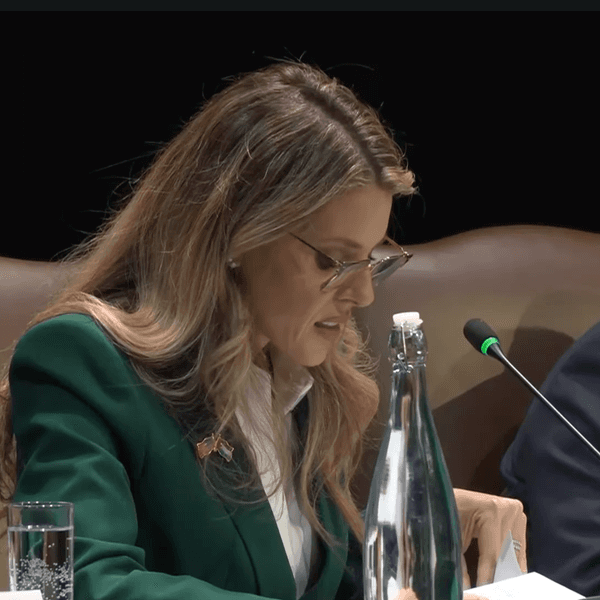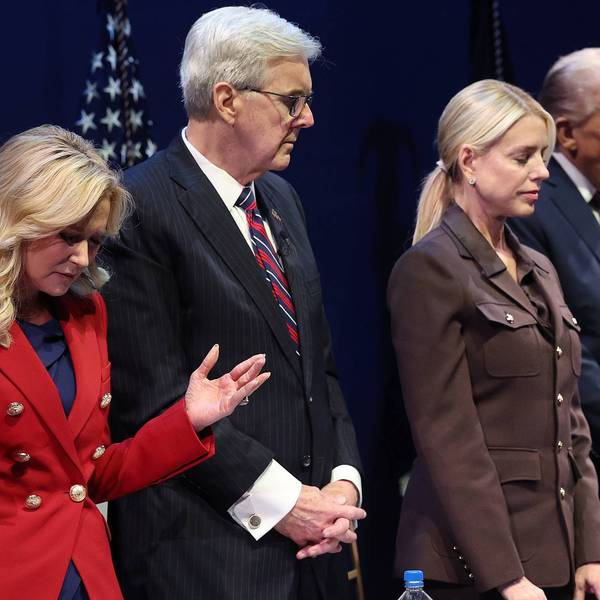As people of faith, we recognize the responsibility of government to seek justice for all people and to build the common good. Justice cannot be achieved unless the rules governing the democratic process are just and fair for all. Central to that process is a citizen's vote -- not limited by the powers of money, social class or unequal access to the ballot box.
Money has always played a role in electoral politics, but what kind of role it plays should be subject to regulations that reflect ethical and democratic values. Most important, it is necessary to have policy safeguards in place which ensure that more than just the wealthiest interest groups have a voice in the public sphere.
So, how do we achieve this? At its core, the real issue here is not just money in politics, but morality in politics. Since Citizens United and McCutcheon, the infamous 2010 and 2014 U.S. Supreme Court cases allowing unlimited and untracked secret money into elections, we have watched with dismay as our system of electing representatives has been corrupted by wealthy special interests; mega-donors, secret groups, and super PACs promoting private gain over public good. These are symptoms - not the sickness. Americans very clearly see that our campaign finance system is no longer honorable or unbiased, but instead is a system that has gradually surrendered any vestiges of a moral compass.
The richest among these wealthy special interests now have the legal right to amplify their voices, diminishing the constitutional free speech that every American is assured. Big Money and all the negative ads it buys has another impact on everyday Americans' voting rights: driving some people to withdraw from the civic responsibilities we all share. People who do not vote actually cast their ballot for Big Money. Depressing turnout makes it easier for Big Money to elect its chosen candidates with fewer votes.
"People who do not vote actually cast their ballot for Big Money."
So, how does money in politics corrupt our electoral morality? A new study in organizational behavior by researchers from Harvard University and the University of Utah suggests an interesting idea: "money changes the way we think - weakening every other social bond."
These social bonds were formed, in part, by a broad spectrum of faith traditions dating back more than 200 years in America. They derive from teachings that recognize each person as a gift of a Creator and emphasize the essential human dignity of every person. We believe firmly that human dignity includes the right to vote in our elections and the right to speak and to be heard. Every person, our shared teachings tell us, should have a voice and a vote on the policies impacting their family's future. The democratic process was founded on the concept that the best solutions come from the marketplace of ideas where everyone can contribute. But these contributions can be nearly meaningless when drowned out by immoral policies.
"Our work will include both mass education and mass mobilization."
That's why more than 200 organizations -- representing a diverse movement of faith, civil rights, environmental justice, voting rights, immigration, civic, and other community groups, which have historically remained separate -- will come together to launch a year-long campaign to bring a moral focus on voting rights with money-in-politics reform. Our work will include both mass education and mass mobilization in Washington, D.C. and nationwide.
The opening of the campaign will be a mass mobilization in Washington in April. "Democracy Awakening" will feature a large march and rally and a Congress of Conscience, in which citizens engage in civil disobedience and other advocacy strategies to demand that their representatives act now to repair our democracy.
As money in politics begins to weigh more than their own voices and views, people see the country losing its hold on democracy and look to Congress for course corrections. In a recent poll, 80 percent of registered voters, across party affiliations, said they believe that our political system needs reform. We believe that starts with "Democracy Awakening."
Faith communities are uniquely positioned to address money in politics because of their commitment to make sure the voices of those in need are not ignored. Pope Francis, in discussing the role of money said, "We have created new idols; the golden calf of old has found a new and heartless image in the cult of money and the dictatorship of an economy which is faceless and lacking any truly humane goals."
In order to expand our democracy and rediscover our moral directions, Americans must engage these issues within their communities, organize with like-minded neighbors, and help build the growing national movement that is coming together at April's "Democracy Awakening." Our democracy is in crisis. Many Americans are blocked from voting; those who can still participate find their votes weakened in this era of Big Money dominance. We can and must do more today to ensure the right to vote and the moral integrity of our elections are secured for generations to come.



